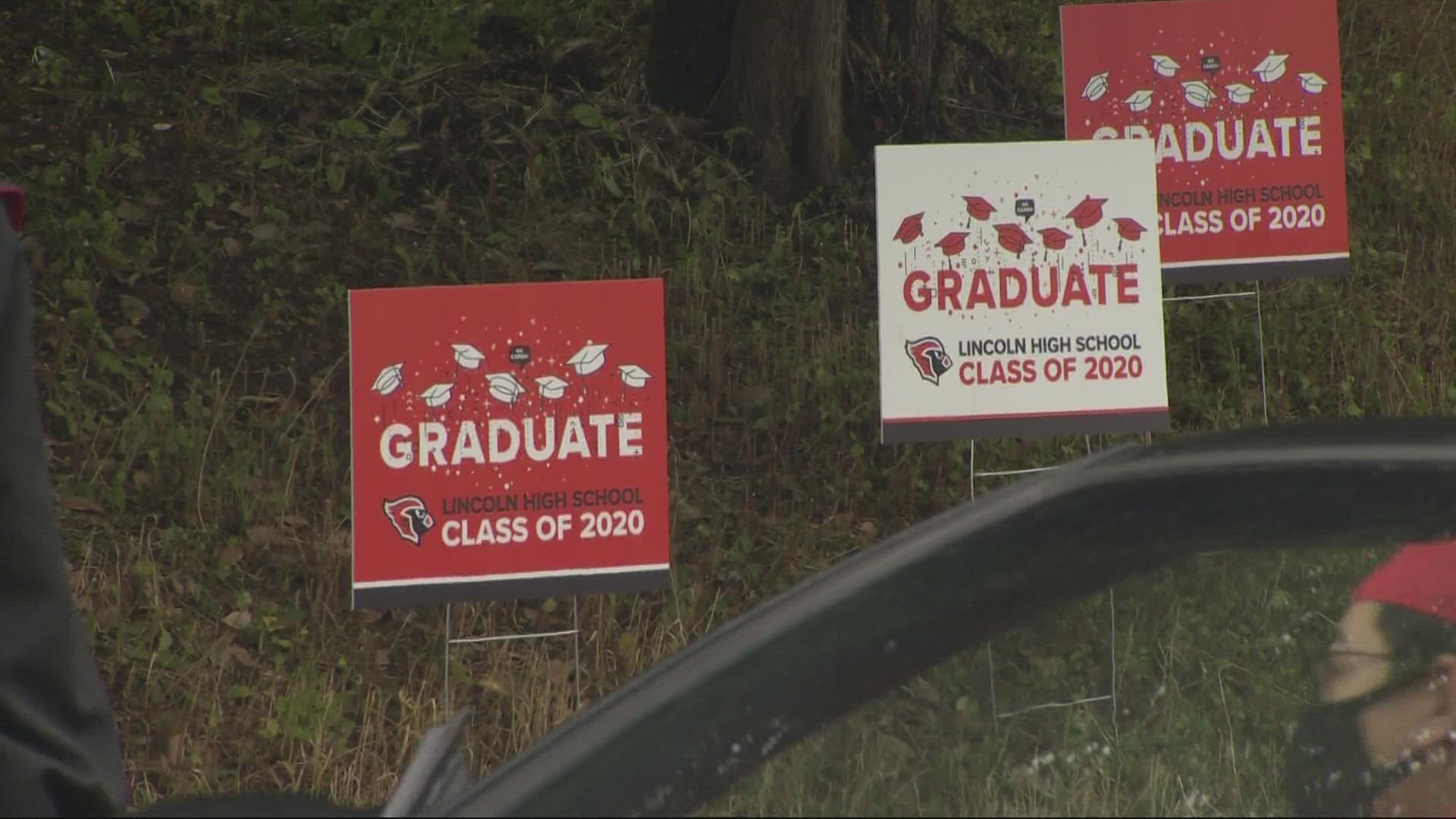PORTLAND, Ore. — Oregon education officials want help to figure out what’s working and what’s not when it comes to high school graduation requirements. They’re hoping Oregonians are willing to weigh in.
Senate Bill 744 passed last year and directs the Oregon Department of Education to review high school graduation requirements. It’s something that hasn’t been done since 2007.
While education officials say high school graduation rates as well as performance among historically underserved communities have improved over time, they hope Oregonians will tell them what high school students need to graduate.
“We're taking this opportunity to dig deeper into understanding why our systems keep creating these outcomes so that we can mitigate the barriers that are keeping students in Oregon from graduating on time. So, progress has been great, but it's not sufficient,” said Dan Farley, director of assessment with the Oregon Department of Education.
Farley said he knows some of the barriers to graduation include poverty, housing instability and student mobility, which is when a student switches schools.
“Those are the kinds of things that we're really interested in identifying as problems, so that we can work together to try to solve them,” he said.
The state has partnered with Oregon’s Kitchen Table, a group out of Portland State University, to design and facilitate conversations with the community.
“Oregon’s Kitchen Table has a website that is dedicated to high school graduation requirements,” Farley said.
The website has a state survey that people can take until April 15. The website also has information on virtual video conferences that are planned for different regions of Oregon in the month of March.
State officials will take what they hear and compile them to present to lawmakers in September.
Farley said other states have done similar reviews that resulted in things like a civics credit requirement, which Oregon already has.
“Families are very much interested in having students demonstrate financial literacy, as well as learning more about computer science. So those are certainly national themes that are present in the conversation,” said Farley.
During the graduate requirement review, Senate Bill 744 also said students won’t have to show proficiency in essential skills to graduate until the 2024-2025 school year. Essential skills encompass areas like reading, writing and math. That made headlines nationally and internationally. But Farley said students will still have to take standardized tests due to federal and state law. The scores just won’t be used to make graduation decisions.
He said it’s not a huge change for most students, who historically have had multiple requirements to meet in order to graduate, one of which is having enough credits.
Farley said the review of graduation requirements is about equity.

